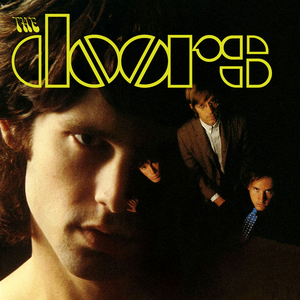Published on Mar 5, 2000
I’ve never been one who subscribed to the whole Doors cult, or
worshipped Jim Morrison as a tragic Christ figure. While I’ve
admired some of the band’s music over the years (one of the first
records I ever had was a 45 of “Light My Fire” that a neighbor gave
to me), I’ve always approached their music with equal amounts of
respect and caution. As long as the Doors kept their feet on the
ground, I was cool with things, but when Morrison went off into his
own musical tangents (as he was wont to do), that was about the
point I would cut bait.
Take the 1967 self-titled release from The Doors. There are
moments of sheer brilliance on this album — and there are moments
where I can’t help but think that the band had to be tripping on
some real nasty stuff. Blasphemy? Rants against the sacred prophet?
Read on, and form your own judgments.
For a group that had no bass player, The Doors were incredibly
tight, if not maybe intentionally sloppy at times. For example,
Robby Kreiger’s guitar solo on “Light My Fire” would not have
carried as much punch had it been more cohesive instead of a little
spacy as it stands. (Actually, in the case of
The Doors, the commentary of “no bass player” is not
correct; keyboardist Ray Manzarek handles the bass chores; but in
general, the band did perform without a bassist.)
As a blues belter, Morrison had more power than I think even he
realized. The proof is on the cover of the Willie Dixon/Howlin’
Wolf classic “Back Door Man,” a song that gave Morrison a chance to
show off his blues pipes better than “Roadhouse Blues” later on in
their career. Likewise, Morrison could easily hold his own on the
band’s own compositions, such as “Soul Kitchen,” “Twentieth Century
Fox” and “Break On Through (To The Other Side).”
But there are moments where you have to step back and ask
yourself, “What were they
thinking?” Exhibit “A”: their cover of “Alabama Song (Whisky
Bar),” a Kurt Weill-Berthold Brecht composition that sounds as out
of place as wearing a Zoot suit to a funeral. Okay, maybe it was a
rather accurate description of Morrison, and that’s why they chose
to do the track, but that doesn’t make it stick out any less like a
sore thumb.
Exhibit “B”: the 11-minute monstrosity known as “The End.” A
Vietnam-esque nightmare of a song which shows a man facing off
against his own personal demons and leading to death and more
despair, this one sounds far too much like a
stream-of-consciousness work that you’d hear booed off the stage at
a poetry slam.
The only other real negative I could find with
The Doors is that a good portion of the second half —
namely, the three songs sandwiched between “Back Door Man” and “The
End” — tend to get lost in a jumble that is the rest of the album.
I don’t want to speak ill of these tracks; chances are, had they
been anywhere else on the album, they’d have been standouts. But a
disservice is done to them by their present placement.
I’ve tried to keep talk about “Light My Fire” to a minimum in
this review, for the simple fact that it is arguably one of the
most recognizable Doors songs in their catalog. I will say this:
Even after over 30 years since its release, it’s still a killer
track — and I happen to love both the original version and the
single edit.
Yeah, I know that the diehard Doors fans and Morrison
worshippers are now ready to kill me for my sacrilegious words. (I
once worked with a Doors freak at the college newspaper; my buddy
Jim and I used to entertain ourselves by throwing X-Acto knives at
the guy’s poster of Morrison he hung on his cubicle wall.) But make
no mistake that when
The Doors attacks things without their heads in the clouds,
the music is quite good and worthy of your time and money. But when
Morrison starts spewing off the top of his head, things turn real
ugly, real quick. Of course, if you worship the ground Morrison
used to walk on, feel free to reverse the descriptions in this
review.
